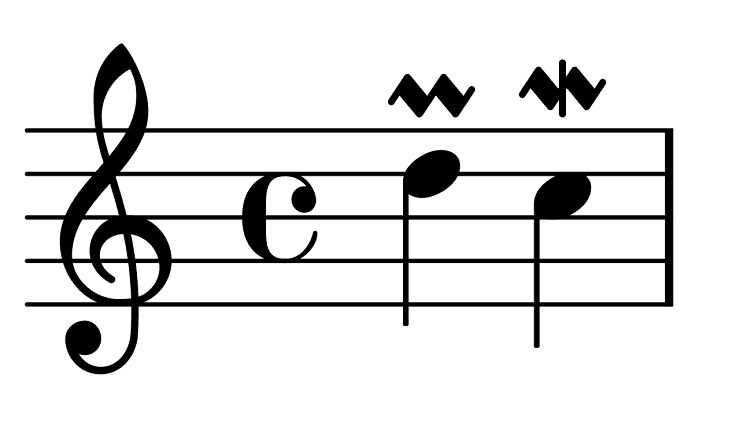Myths about teaching can hold you back
Learn why
Lesson 11 of 13
- Year 8
Lesson 11 of 13
- Year 8
How can we compose a stylistic Baroque melody?
These resources were made for remote use during the pandemic, not classroom teaching.
Switch to our new teaching resources now - designed by teachers and leading subject experts, and tested in classrooms.
Lesson details
Key learning points
- In this lesson, we will learn how to create a more sophisticated and stylistic melody. We will explore Baroque ornamentation and rhythms, and experiment with passing notes to create our own melodies. We will then explore how to further manipulate this in a Digital Audio Workstation.
Licence
This content is made available by Oak National Academy Limited and its partners and licensed under Oak’s terms & conditions (Collection 1), except where otherwise stated.
10 Questions
Q1.What is a chord?
What is a chord?
A repeated note
Two notes
Q2.What is a triad?
What is a triad?
A three sided note
Three notes next to each other: 1, 2, 3
Q3.What are the notes of a D major triad?
What are the notes of a D major triad?
D, E F#
D, F# B
Q4.How do the pitches of melody 1 relate to the chords?
How do the pitches of melody 1 relate to the chords?
Half of the notes are from the chords, the others are passing notes
They are the root of the chord
Q5.What are the note values of melody 1?
What are the note values of melody 1?
1 beat - crotchets
1/2 beat - quavers
Q6.What is the shape of melody 2?
What is the shape of melody 2?
Ascending to the middle, then it descends
Ascending, then it descends at the end
Q7.Describe the melody of melody 1
Describe the melody of melody 1
Moves completely in leaps
Moves in a combination of steps and leaps
Q8.How could you vary a melody?
How could you vary a melody?
Change the instrument
Make it faster
Q9.What is a canon?
What is a canon?
When a different part comes in at the same time, creating a polyphonic texture
When a different part comes in later, creating a polyphonic texture
Q10.How do you create a canon on a DAW?
How do you create a canon on a DAW?
You copy the melody and change the instrument
You create a new melody to play over the top of the old melody
10 Questions
Q1.What is a passing note?
What is a passing note?
A missed out note
A repeated note
Q2.What would a suitable passing note between D and F#?
What would a suitable passing note between D and F#?
B
G
Q3.What does 'legato' mean?
What does 'legato' mean?
Playing something in a harsh way.
Playing something in a short and spiky way.
Q4.What does 'staccato' mean?
What does 'staccato' mean?
Playing something in a harsh way.
Playing something in a smooth way.
Q5.What do we call melodic decorations in music?
What do we call melodic decorations in music?
Additions
Colour
Q6.How can we make an elaborate melody?
How can we make an elaborate melody?
Change the instrument
Change the speed
Q7.How do you play this ornament?
How do you play this ornament?

You play it very short before another note
You play the note above very quickly
Q8.What is this ornament and how do you play it?
What is this ornament and how do you play it?

A grace note - you play it very quickly before another note
A trill - you alternate between two notes very quickly
Q9.What rhythm is used in melody 4?
What rhythm is used in melody 4?
Crotchet rhythm
Push rhythm
Q10.Name one difference between melody 2 and 3.
Name one difference between melody 2 and 3.
Melody 2 is faster than melody 3
Melody 2 is lower than melody 3

